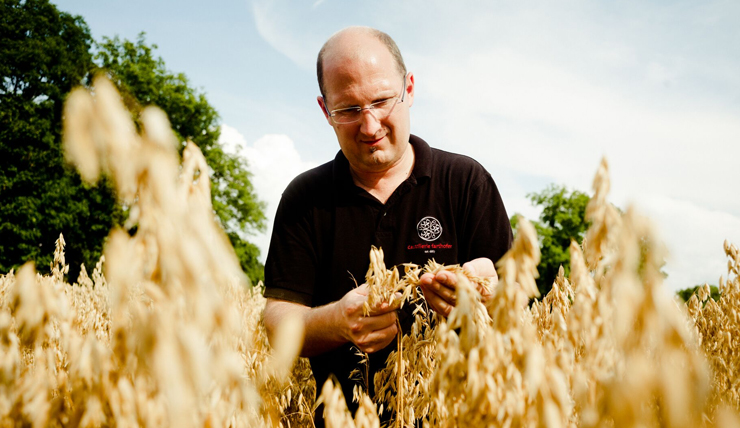Over 4 million people have signed a petition on the Avaaz Internet platform. It was about the re-approval of glyphosate. This is a broad-spectrum herbicide that is used against weeds and carries countless dangers and risks. Now Monsanto Avaaz complains about the publication of the personal data of glyphosate opponents. In our case, that would not be necessary. We also signed the petition. And everyone can and should know that. We have chosen organic agriculture and thus a viable alternative to glyphosate & Co.
Glyphosate is not a brand, but the name of the active substance for a herbicide. For consumers, it comes under the product name RoundUp on the shelves, for chemo-farmers, there are products such as Touchdown Quattro, Dominator Ultra or Vorox. A total of 35 glyphosate-containing sprays are permitted in conventional agriculture. Organic farmers are clearly prohibited from using these funds. Glyphosate, or the corresponding applications are extremely successful both in agriculture, but also in the – private – garden area. The substance affects all green plants. The active ingredient blocks an enzyme that plants need to produce vital amino acids, but also found in fungi and microorganisms.
Surfaces where RoundUp & Co. are applied are easy to spot. They are dead. Where the remedy is applied there is no grass, no herb, no shrub and no moss. An overview of the hazard and risk assessment is provided by BIO AUSTRIA.
With BIO to the glyphosate-free future
But we are going different ways anyway. We weed and hunt, we count on variety and see in our fields rather than weeds. Organic agriculture can already draw on a wealth of experience. Otto Gasselich, chairman of the state association BIO AUSTRIA Vienna-Lower Austria, knows this too: “The fact is that organic farming has decades of experience in the field of mechanical weed control, that is, in the consistent renunciation of herbicides such as glyphosate. This is a wealth of experience that we would like to share with the entire agricultural community. We know from our daily work in organic farming that it works. And it works very well, as already 22% of all Austrian farms show. From the tradition and knowledge of organic farming, a glyphosate-free future can grow for all of Austria. “






